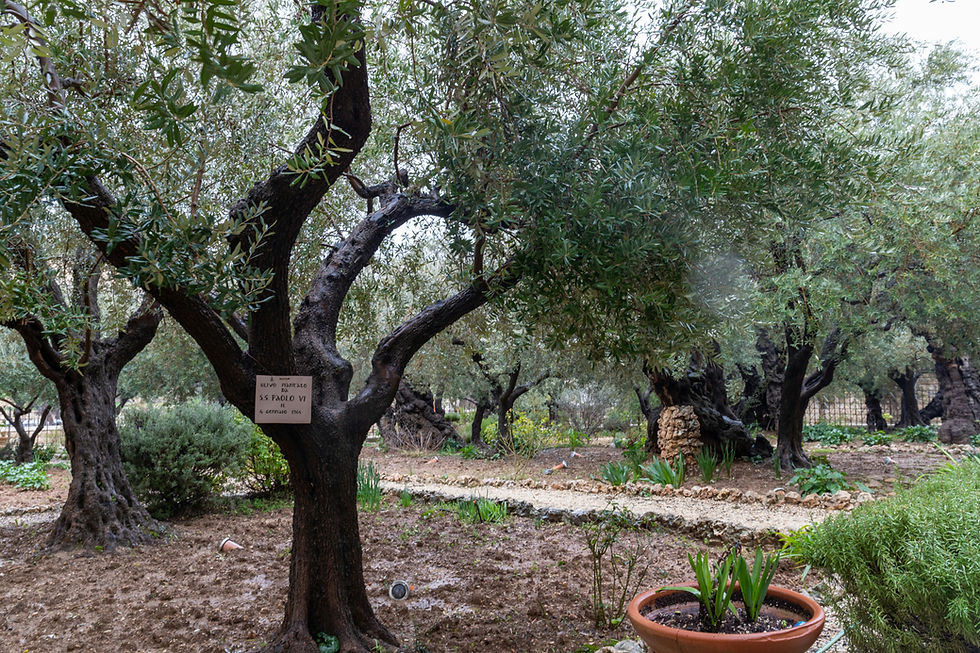Prepare the Way of the LORD
- JCGR

- Sep 8
- 3 min read

The Gospel of Mark opens with a clear contrast: there are two paths in life—the way of the world and the way of the Lord. Every person must choose which path to walk, and the Gospel presses this choice upon us. Mark wastes no time reminding us that God has always been preparing the way for His Son and calling His people to repentance, faith, and renewal.
The Word Bears the Authority of God
Mark begins by drawing from the Old Testament—Isaiah, Exodus, and Malachi. Each passage points to a messenger who would come before the Lord to prepare His people. Isaiah speaks of a voice crying in the wilderness, preparing the highway for God’s glory. Exodus recounts God sending His angel to guide Israel into the land of promise. Malachi announces the messenger of the covenant, the one who comes with purifying fire.
All three find their fulfillment in John the Baptist, the prophet who came preaching repentance. His message was not a new philosophy, not emotional persuasion, and not mystical speculation. It was the Word of God proclaimed with the authority of the God who sent him. The Gospel is not human wisdom dressed in religious clothing—it is God Himself coming in the flesh with a divine purpose.
The Messenger Sent to Prepare the Path
After four hundred years of silence, John’s voice broke into history like thunder. He appeared not in palaces or city squares, but in the wilderness, clothed in simplicity and preaching with authority. His task was not to draw attention to himself but to point beyond himself, to prepare the way for the Messiah.
John’s preaching called people to repentance and forgiveness. To preach, kerysson, is to proclaim with authority, to announce the truth of God in such a way that it pierces the heart. His message cut through complacency and pride, calling men and women to return to God and find fresh forgiveness. The aim of preaching is not to impress but to transform, not to flatter but to turn hearts back to the Lord.
The Gospel Transforms Lives
Mark records that people flocked from all over Judea to hear John. They confessed their sins and were baptized in the Jordan as a sign of repentance. Repentance was not a passing regret or a wish for blessing, but a turning of the whole heart and mind away from pride and toward God. Baptism, then, was the outward sign of an inward cleansing—the seal of God’s work of forgiveness.
As Paul would later write, salvation is not found in works of the law but in faith: confessing with the mouth that Jesus is Lord and believing in the heart that God raised Him from the dead (Romans 10:9–10). This is the way of righteousness—not our way, but God’s way.
Preparing His Way Today
John prepared the way for Christ’s first coming. We, too, are called to prepare the way for His coming again. How do we do this?
Repent daily. God’s mercies are new every morning (Lamentations 3:22–23). Repentance is not a one-time act but a daily return to Him.
Share the good news. Not part of it, not a watered-down version, but the whole message of Christ crucified and risen.
Live out faith in community. The church is the body of Christ, called to grow together in unity, maturity, and love (Ephesians 4:1–16).
The choice still stands before us: the way of the world or the way of the Lord. The Gospel calls us to prepare His way—not with empty ritual, but with hearts turned toward Him, voices declaring His truth, and lives shaped by His Spirit.
The voice crying in the wilderness still echoes today: Prepare the way of the Lord, make His paths straight. May we be a people ready, repentant, and rejoicing in the One who has come and will come again.




Comments